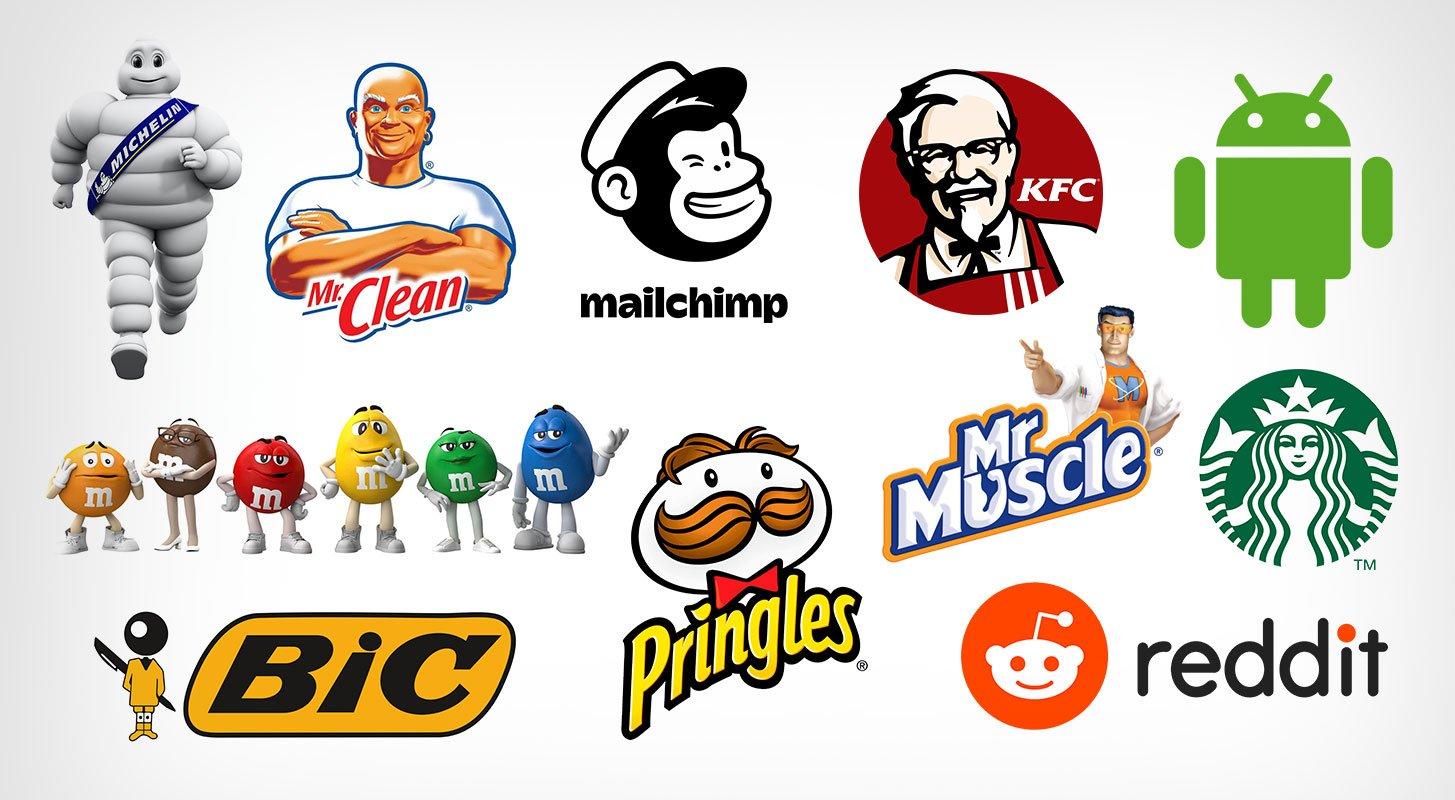
Have you ever looked at a company’s logo and thought, “Wow, that logo just gets me”? Well, what if I told you that there’s a whole world of design out there that focuses on creating logos that tell a story, that capture the essence of a brand’s identity in a single image? That’s right folks, we’re talking about crafting logos with narrative. Join us on a journey through the wild and wonderful world of logo design, where every curve, every color, and every font choice is a carefully crafted piece of a brand’s identity puzzle. Get ready to dive deep into the world of logo design, where the only limit is your imagination (and maybe a budget or two). Welcome to the intersection of art, storytelling, and branding – it’s going to be one heck of a ride!
The Power of Logos in Establishing Identity
Logos are like the superheroes of branding – they swoop in with their capes flapping and save the day by establishing a company’s identity with just a glance. They may not have the ability to fly or shoot laser beams from their eyes, but they sure know how to make a lasting impression.
Imagine walking into a room filled with people wearing plain white t-shirts. It’s like a sea of boring, right? But then, someone swoops in wearing a t-shirt with a familiar swoosh or golden arches – suddenly, you know exactly who they are without even having to ask. That’s .
Logos are like the secret code that unlocks a company’s personality. They can be bold and in-your-face like a bright red apple with a bite taken out of it, or subtle and mysterious like a simple swoosh. No matter the style, a logo tells the world who you are and what you’re all about in a split second.
So next time you see a logo, take a moment to appreciate the work that went into creating it. It’s not just a pretty picture – it’s a powerful tool that speaks volumes without saying a single word. And hey, who knows, maybe one day you’ll be wearing that t-shirt with the swoosh on it, too.
symbolism-to-convey-narrative”>Utilizing Symbolism to Convey Narrative
In storytelling, symbolism is like sprinkles on top of a cupcake – a delightful bonus that enhances and adds depth to the overall experience. By using symbols strategically, writers can convey complex ideas and emotions without explicitly stating them.
Imagine a character carrying a lantern through a dark forest. This lantern not only illuminates the path ahead but also symbolizes hope, guidance, and the pursuit of knowledge. It’s like the character’s personal GPS navigating them through the twists and turns of the narrative.
Similarly, a recurring motif such as a red rose can symbolize love, passion, or even danger. It’s like the writer’s secret code, quietly whispering hidden meanings to the readers without them even realizing it.
So, next time you’re crafting a story, don’t underestimate the power of symbolism. Whether it’s a subtle metaphor or a blatant image, symbols can transform your narrative from a plain loaf of bread to a delectable layer cake with cherry on top.

Connecting Brand Identity with Customer Perception
When it comes to , it’s important to remember that first impressions are everything. Your logo, website, and overall branding should convey the message you want customers to associate with your company. It’s like going on a first date – you want to make a good impression to secure that second visit!
Think of your brand as a superhero – it should have a clear mission, values, and a unique identity that sets it apart from the rest. Just like Superman has his cape and Batman has his bat signal, your brand should have something that instantly captures the attention of your customers.
Remember, consistency is key when it comes to branding. You don’t want to confuse your customers by sending mixed messages - it’s like trying to decide between sweet or savory for breakfast. Pick a lane and stick to it!
So, the next time you’re working on your branding strategy, think about how you want your customers to perceive your brand. Whether you’re going for sleek and sophisticated or fun and playful, make sure your brand identity aligns with what your customers are looking for. After all, you want them to fall in love at first sight!

Crafting Logos that Tell a Compelling Story
When it comes to , it’s important to think outside the box. Gone are the days of generic, cookie-cutter logos that lack personality. Your logo should be a reflection of your brand’s unique story and values. Here are some tips to help you create a logo that truly stands out:
- Think about your brand’s personality: Is your brand fun and quirky or serious and professional? Make sure your logo reflects the tone and vibe of your brand.
- Use color psychology to your advantage: Colors evoke different emotions and can help tell your brand’s story. Think about what emotions you want your logo to convey and choose colors accordingly.
- Incorporate hidden meanings: Adding subtle, hidden elements to your logo can make it more engaging and memorable. Think about incorporating elements that have a special meaning to your brand or industry.
Remember, your logo is often the first thing people see when they encounter your brand, so make sure it leaves a lasting impression. By crafting a logo that tells a compelling story, you can captivate your audience and make your brand stand out from the competition.

The Importance of Consistency in Logo Design
When it comes to logo design, consistency is key. Think of your logo as the face of your brand – you wouldn’t show up to work with half your face painted, would you? So why would your logo be any different?
Consistency in logo design helps create brand recognition. Imagine if McDonald’s changed their iconic golden arches to a different color every week – you’d be driving in circles trying to find your next Big Mac fix! Keep your logo consistent so that customers can easily spot your brand amongst the sea of competitors.
Not only does consistency help with brand recognition, but it also shows professionalism. A well-designed logo that is consistently used across all platforms - from your website to social media to business cards – shows that you mean business. Plus, it saves you from the embarrassment of showing up to a networking event with a logo that looks like it was designed by a toddler with a crayon.
So remember, folks, when it comes to logo design, consistency is queen. Keep your logo looking sharp and consistent, and watch as your brand gains recognition and credibility faster than you can say ”Helvetica, please.”
Building Trust and Loyalty through Effective Branding
Creating a memorable brand is like finding the perfect pair of shoes – it takes time, effort, and a little bit of luck. Just like how you meticulously select shoes that fit just right, your brand should be tailored to attract and retain loyal customers. Here are some tips to help you build trust and loyalty through effective branding:
- Know your audience: It’s important to understand who your customers are and what they value. Are they trendy millennials or sophisticated baby boomers? Once you know your audience, you can tailor your branding efforts to resonate with them.
- Consistency is key: Just like a reliable pair of shoes, your brand should be consistent across all platforms. From your website to social media to packaging, make sure your brand messaging is cohesive and recognizable.
- Deliver on your promises: Trust is like a delicate pair of heels – once broken, it’s hard to repair. Make sure your branding accurately reflects the quality of your products or services. Don’t promise a Cinderella experience if you’re serving up glass slippers.
is like building a relationship - it takes time, effort, and a little bit of magic. By following these tips, you can create a brand that not only attracts customers but keeps them coming back for more. So, lace up those branding shoes and get ready to strut your stuff!
Evolving and Adapting Logos to Reflect Changing Identities
Logos are like chameleons – they need to adapt to survive in the ever-changing jungle of the business world. Just like how a chameleon changes its colors to blend in with its surroundings, logos must evolve to reflect the changing identities of companies.
One way companies can update their logos is by simplifying them. Remember when McDonald’s changed their logo from a full-on McDonald’s name to just the golden arches? That’s the power of simplicity, folks. It’s like taking a big gulp of refreshing lemonade on a hot summer day.
Another way companies can evolve their logos is by updating the color palette. Bye-bye boring black and white, hello vibrant colors! Studies have shown that colors can evoke emotions in people, so why not tap into that and make your logo pop like a bag of microwave popcorn?
And let’s not forget about incorporating modern design trends into logos. Think sleek lines, bold fonts, and maybe even a touch of whimsy. It’s like giving your logo a facelift at the hottest plastic surgery clinic in town.
FAQs
What types of logos work best for telling a narrative?
Logos that incorporate storytelling elements such as characters, settings, and plotlines work best for crafting a narrative. Think of your logo as a mini comic strip or a movie poster – the more engaging the story, the more memorable the logo!
How can I incorporate my personal identity into my logo design?
Start by thinking about key aspects of your identity – what makes you unique? Maybe it’s your love for travel, your quirky sense of humor, or your passion for music. Incorporate these elements into your logo to create a visual representation of yourself.
Can a narrative logo help my brand stand out in a crowded market?
Absolutely! In a sea of bland and generic logos, a narrative logo can help your brand stand out by invoking emotion, sparking curiosity, and creating a connection with your audience. Plus, who doesn’t love a good story?
How can I make sure my narrative logo is both creative and professional?
Balancing creativity and professionalism can be tricky, but it’s definitely achievable. Focus on creating a clear and cohesive storyline in your logo while maintaining a polished design. Remember, you want to intrigue your audience, not confuse them!
What are some tips for crafting a memorable narrative logo?
First and foremost, keep it simple! A cluttered logo with too many elements can overwhelm and confuse viewers. Also, make sure your narrative is authentic to your brand and resonates with your target audience. And don’t forget to have fun - after all, storytelling should be an enjoyable process!
Unraveling the Tapestry of Identity
And there you have it, fellow logophiles! We’ve delved into the depths of crafting logos with narrative, exploring identity along the way. Remember, a logo isn’t just a design - it’s a story waiting to be told. So go forth, armed with your newfound knowledge, and weave tales of identity into every logo you create. Who knows, you might just unravel the mysteries of the universe in the process. Happy crafting, and may your logos be as unique as your fingerprint!












